Neonatal Intensive Care Unit (NICU)
We’re bringing the latest technology to serve the most vulnerable among us in the Neonatal Intensive Care Unit.
WHY YOUR SUPPORT MATTERS
The ability to save tiny lives and comfort families facing the premature arrival of a child, or the delivery of a child in distress, is undoubtedly one of the most rewarding ways a donor could impact a life.
Campaign Progress
Providence Saint Joseph Medical Center’s Level III NICU provides a seamless spectrum of specialized care.
We launched the Labor & Delivery and NICU Campaign to raise $2 million to acquire advanced technology and equipment to match the outstanding expertise of our physicians and nurses. Your contribution has directly influenced our ability to meet the needs of our patients.

0%
$2M Raised

100% of the fundraising goal achieved with the help of neighbors like you
Giraffe OmniBeds
These incubators act as a substitute womb, insulating and protecting babies as they continue to develop. At the same time, the incubators allow our nurses to weigh the baby and quickly intervene when the newborn is in distress.
DonateCooling equipment
This equipment is used in a non-invasive process to regulate the baby’s body temperature and keep it at healthy levels. Maintaining a healthy body temperature is vital to suppressing trauma on important organs like the brain, heart and liver when a premature baby has been deprived of oxygen.
donateTransporters
These vehicles are essentially mini NICU units on wheels. They are used to carry vulnerable babies from other medical centers to Providence Saint Joseph. The transporters are equipped with monitors, ventilators and cooling mechanisms for babies who need advanced treatment.
donateWebcams
Separation from their babies can create real distress for families. That is why we have
equipped our Giraffe OmniBeds with webcams, to allow parents and authorized viewers to access continuous footage of their newborn, 24/7, from anywhere in the world.
donateGiraffe OmniBeds
These incubators act as a substitute womb, insulating and protecting babies as they continue to develop. At the same time, the incubators allow our nurses to weigh the baby and quickly intervene when the newborn is in distress.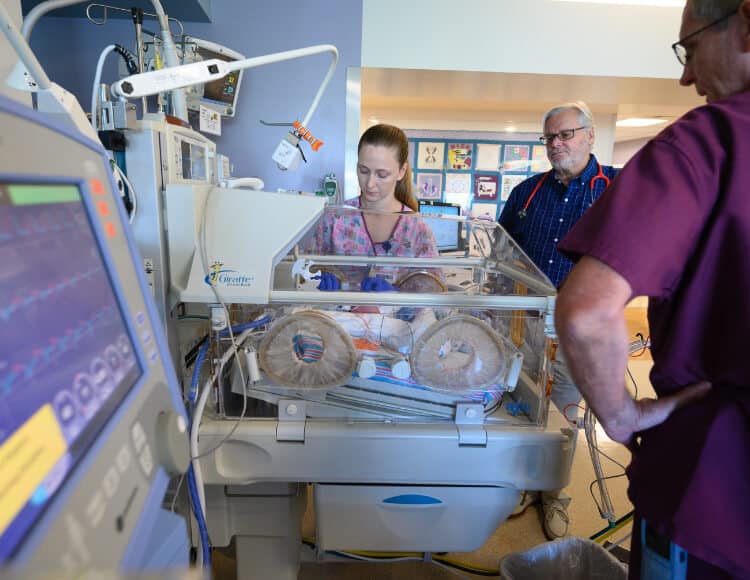
Cooling equipment
This equipment is used in a non-invasive process to regulate the baby’s body temperature and keep it at healthy levels. Maintaining a healthy body temperature is vital to suppressing trauma on important organs like the brain, heart and liver when a premature baby has been deprived of oxygen.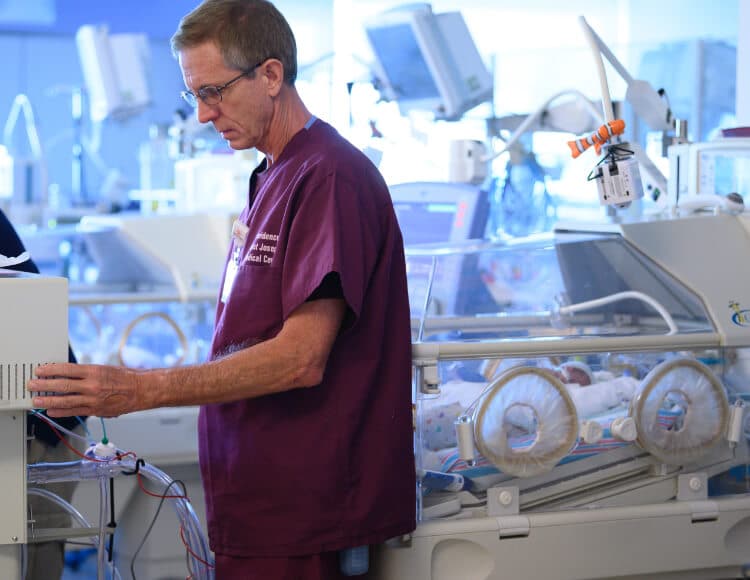
Transporters
These vehicles are essentially mini NICU units on wheels. They are used to carry vulnerable babies from other medical centers to Providence Saint Joseph. The transporters are equipped with monitors, ventilators and cooling mechanisms for babies who need advanced treatment.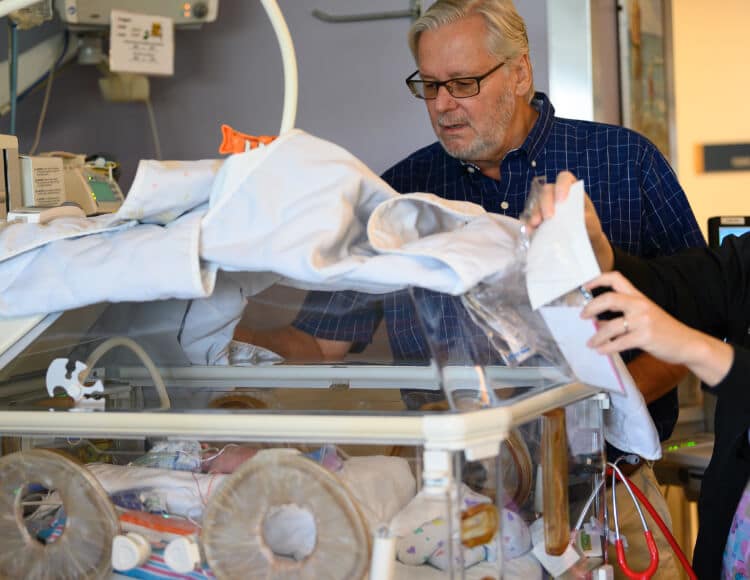
Webcams
Separation from their babies can create real distress for families. That is why we have equipped our Giraffe OmniBeds with webcams, to allow parents and authorized viewers to access continuous footage of their newborn, 24/7, from anywhere in the world.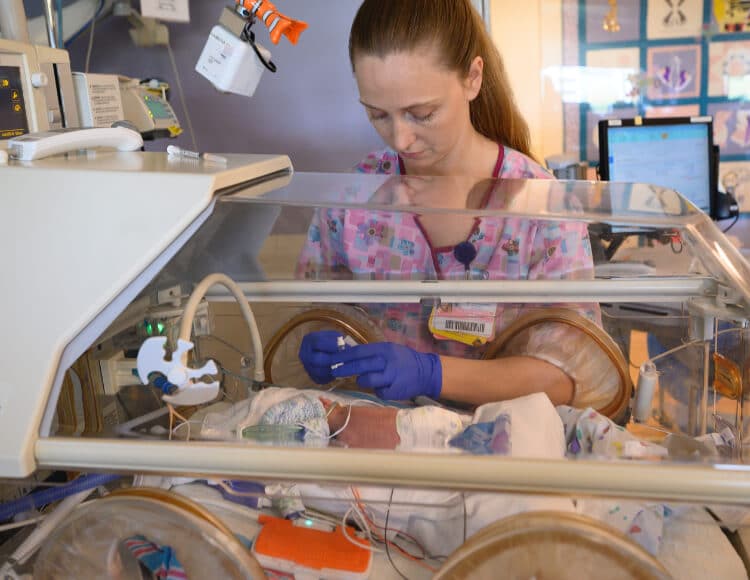
A donation makes a difference. Here’s proof.
As our area continues to face unprecedented challenges as a result of the coronavirus pandemic, our community has stood with Providence Saint Joseph Foundation—securing vital support, providing personal protective equipment, offering meals to feed our heroes and much more.
Gifts from Saint Joe’s donors have supported leading-edge medical technologies in our Neonatal Intensive Care Unit (NICU), including NICVIEW™ Camera systems that allow family and friends to see their NICU’s newborns remotely on any computer, tablet or smartphone, 24/7.
Now a comprehensive stroke center, our emergency services department is transforming to create a more efficient and patient-centered experience for all.
SUPPORT OUR WORK
Now, more than ever, our community needs Providence Saint Joseph Medical Center and compassionate neighbors like you.
Meet The Experts

Dr. Robert Gall
Medical Director, Neonatal Intensive Care Unit
Robert Gall, MD has been in practice for more than 20 years.

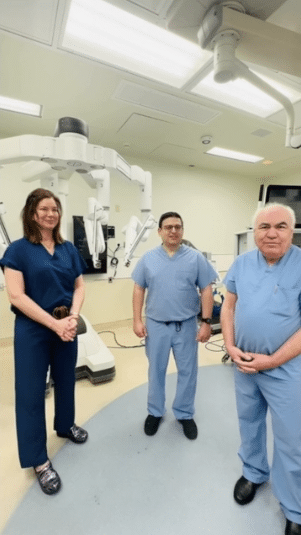

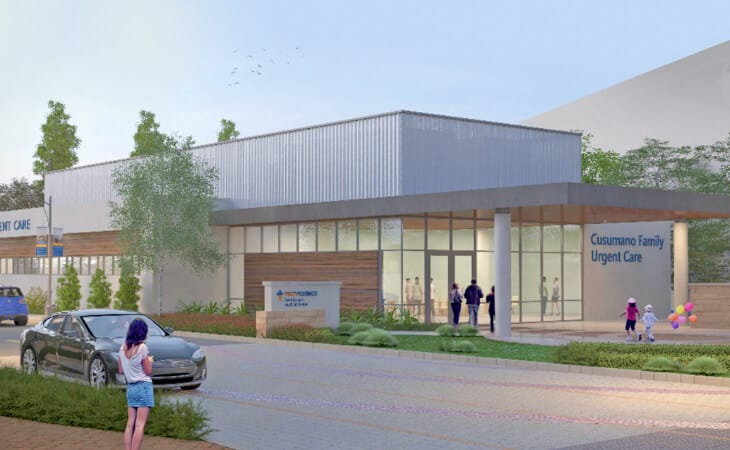


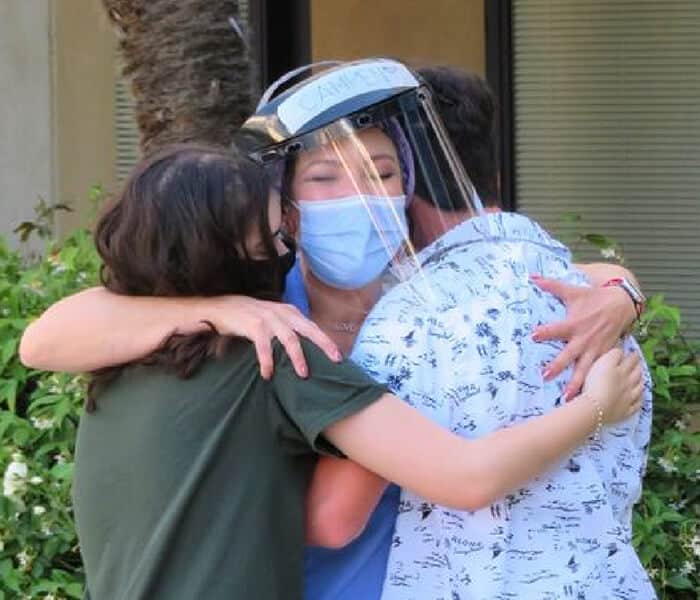


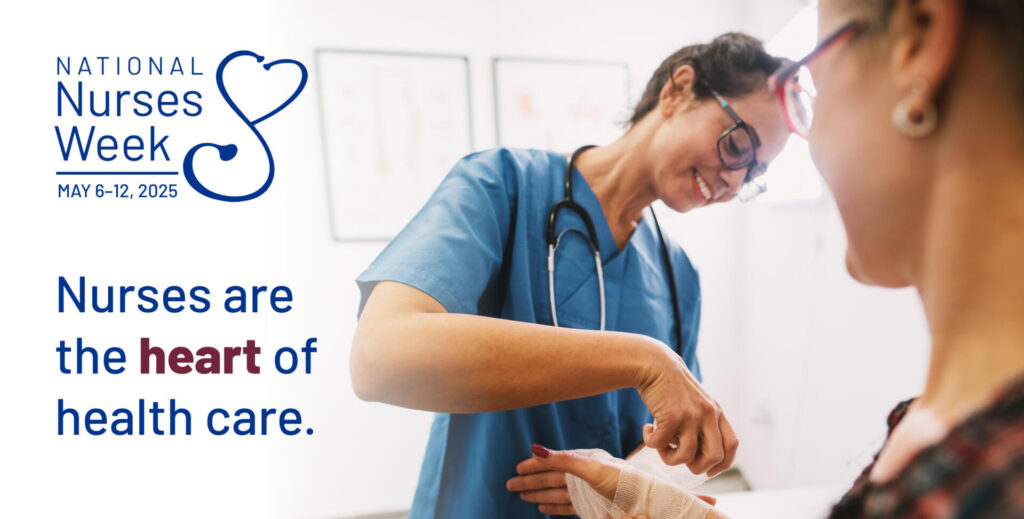
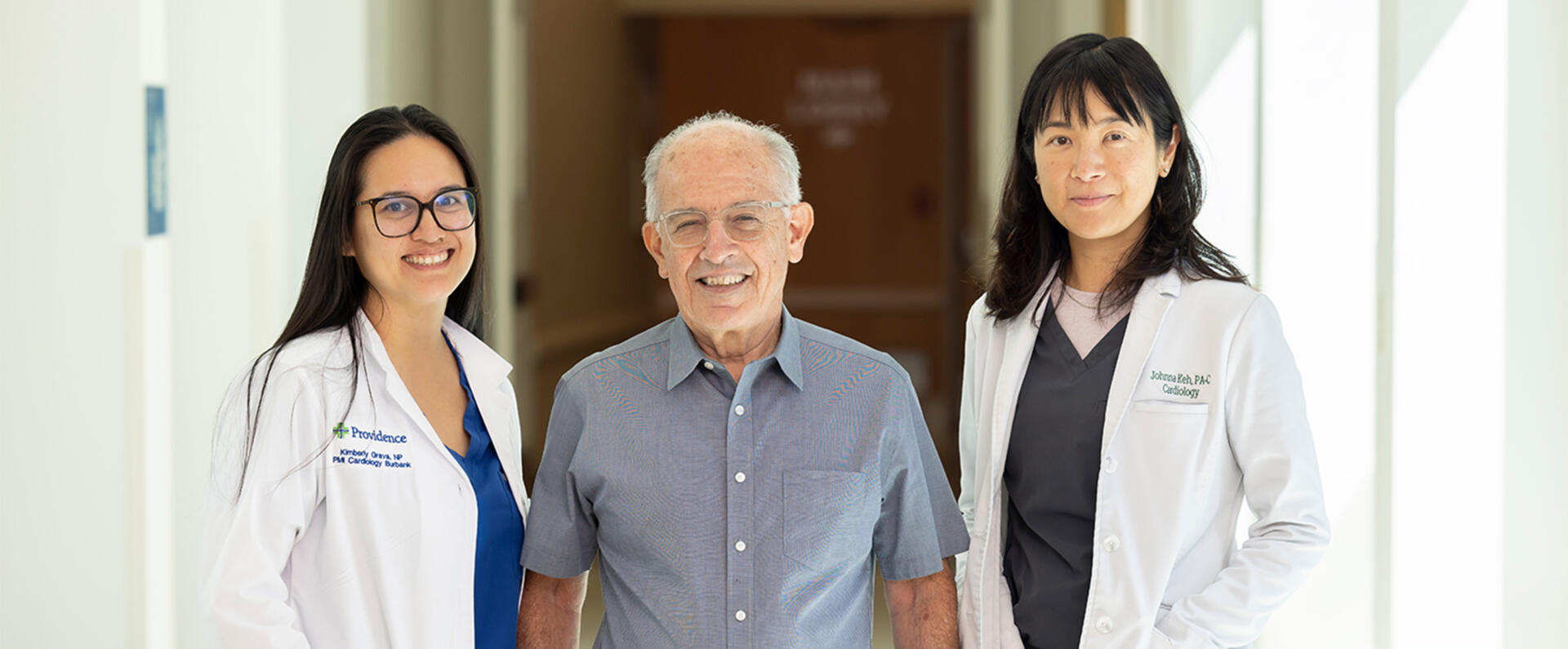


Share